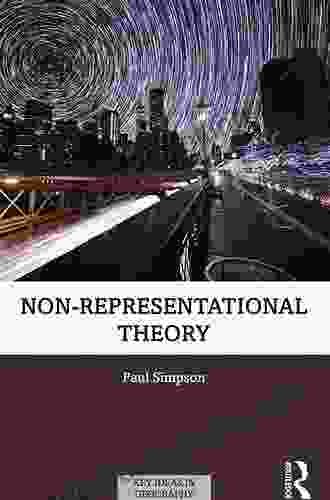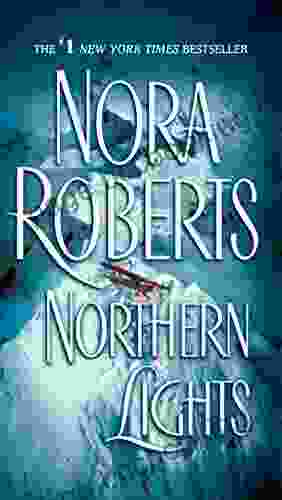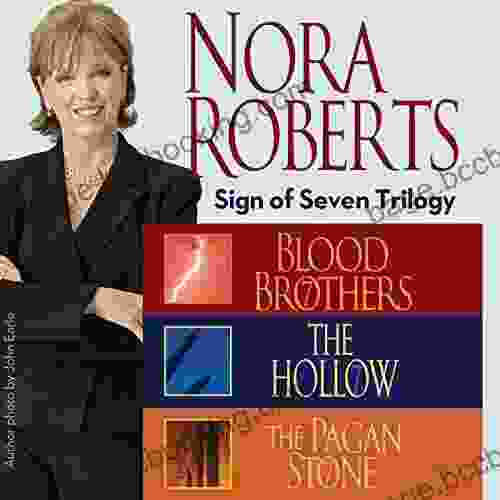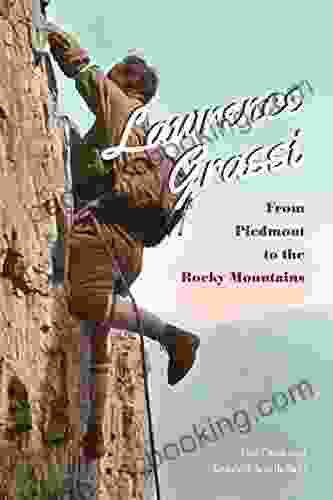Non-Representational Theory: Key Ideas in Geography

5 out of 5
| Language | : | English |
| File size | : | 7305 KB |
| Screen Reader | : | Supported |
| Print length | : | 266 pages |
| X-Ray for textbooks | : | Enabled |
Non-representational theory (NRT) is a theoretical approach that challenges the idea that geographical knowledge is a representation of the real world. Instead, NRT argues that geographical knowledge is produced through social and cultural processes and is always partial and incomplete.
NRT has its roots in post-structuralist and post-modernist thought. Post-structuralism argues that there is no such thing as a single, objective reality. Instead, reality is constructed through language and discourse. Post-modernism argues that the world is characterized by fragmentation, diversity, and difference. These ideas have led NRT geographers to reject the idea that geographical knowledge can be a neutral and objective representation of the world.
NRT geographers argue that geographical knowledge is always produced from a particular perspective. This perspective is shaped by the social and cultural context in which the knowledge is produced. As a result, geographical knowledge is always partial and incomplete. It can only ever represent a particular perspective on the world.
NRT has been used to challenge a wide range of geographical concepts, including space, place, and landscape. NRT geographers have argued that these concepts are not fixed and objective, but are instead produced through social and cultural processes.
For example, NRT geographers have argued that space is not a neutral container for human activity, but is instead a social and cultural construct. Space is produced through the ways in which people interact with each other and with their environment. It is shaped by power relations, social norms, and cultural values.
Similarly, NRT geographers have argued that place is not a fixed and unchanging entity, but is instead a constantly changing process. Place is produced through the ways in which people experience and interact with their environment. It is shaped by personal experiences, memories, and emotions.
NRT has also been used to challenge the concept of landscape. NRT geographers have argued that landscape is not a passive backdrop for human activity, but is instead an active force in shaping human lives. Landscape is produced through the ways in which people interact with their environment. It is shaped by human activities, such as agriculture, forestry, and mining.
NRT has been a major influence on geography in recent years. It has challenged many of the traditional assumptions of the discipline and has opened up new ways of thinking about space, place, and landscape.
Key Ideas in Non-Representational Theory
The following are some of the key ideas in non-representational theory:
- There is no such thing as a single, objective reality. Reality is constructed through language and discourse.
- Geographical knowledge is always produced from a particular perspective. This perspective is shaped by the social and cultural context in which the knowledge is produced.
- Geographical knowledge is always partial and incomplete. It can only ever represent a particular perspective on the world.
- Space, place, and landscape are not fixed and objective concepts. They are instead produced through social and cultural processes.
Non-representational theory is a complex and challenging theoretical approach. However, it has the potential to revolutionize the way we think about geography. NRT challenges us to question our assumptions about the world and to recognize the ways in which our knowledge is shaped by our social and cultural context.
NRT is not a theory that provides easy answers. However, it is a theory that can help us to understand the world in new and more complex ways.
5 out of 5
| Language | : | English |
| File size | : | 7305 KB |
| Screen Reader | : | Supported |
| Print length | : | 266 pages |
| X-Ray for textbooks | : | Enabled |
Do you want to contribute by writing guest posts on this blog?
Please contact us and send us a resume of previous articles that you have written.
 Book
Book Novel
Novel Page
Page Chapter
Chapter Text
Text Story
Story Genre
Genre Reader
Reader Library
Library Paperback
Paperback E-book
E-book Magazine
Magazine Newspaper
Newspaper Paragraph
Paragraph Sentence
Sentence Bookmark
Bookmark Shelf
Shelf Glossary
Glossary Bibliography
Bibliography Foreword
Foreword Preface
Preface Synopsis
Synopsis Annotation
Annotation Footnote
Footnote Manuscript
Manuscript Scroll
Scroll Codex
Codex Tome
Tome Bestseller
Bestseller Classics
Classics Library card
Library card Narrative
Narrative Biography
Biography Autobiography
Autobiography Memoir
Memoir Reference
Reference Encyclopedia
Encyclopedia Tony Rose
Tony Rose Stephanie Casemore
Stephanie Casemore Wenguang Huang
Wenguang Huang Ron Stodghill
Ron Stodghill Ted Allan
Ted Allan Octavia E Butler
Octavia E Butler Terri Murphy
Terri Murphy Paul J Nahin
Paul J Nahin Tristan Jones
Tristan Jones Paul Wilmott
Paul Wilmott Wesley B Turner
Wesley B Turner P A Yeomans
P A Yeomans Pico Iyer
Pico Iyer Robert Richard
Robert Richard Peter Rosenbluth
Peter Rosenbluth Ruben Alvarado
Ruben Alvarado Peter Watts
Peter Watts Travis Wayne Goodsell
Travis Wayne Goodsell Peter B Gillis
Peter B Gillis Todd Wilkinson
Todd Wilkinson
Light bulbAdvertise smarter! Our strategic ad space ensures maximum exposure. Reserve your spot today!
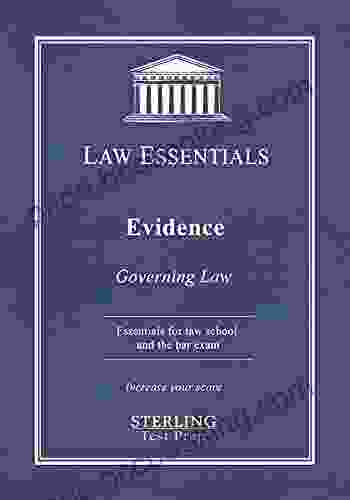
 Marvin HayesGoverning Law for Law School and Bar Exam Prep: Your Essential Guide to Legal...
Marvin HayesGoverning Law for Law School and Bar Exam Prep: Your Essential Guide to Legal... Salman RushdieFollow ·12.6k
Salman RushdieFollow ·12.6k Dallas TurnerFollow ·5.6k
Dallas TurnerFollow ·5.6k Anthony BurgessFollow ·4.7k
Anthony BurgessFollow ·4.7k Gabriel HayesFollow ·4.6k
Gabriel HayesFollow ·4.6k Walter SimmonsFollow ·2.5k
Walter SimmonsFollow ·2.5k James HayesFollow ·13.1k
James HayesFollow ·13.1k Garrett PowellFollow ·15.6k
Garrett PowellFollow ·15.6k Roland HayesFollow ·16.3k
Roland HayesFollow ·16.3k

 Marvin Hayes
Marvin HayesGoverning Law for Law School and Bar Exam Prep: Your...
Unlock the Secrets of...
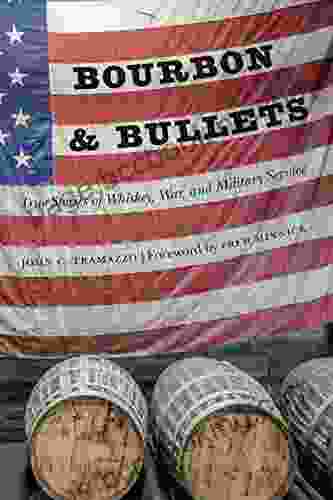
 Sidney Cox
Sidney CoxUnveiling the Epic Tales of Whiskey, War, and Military...
In the tapestry of history,...
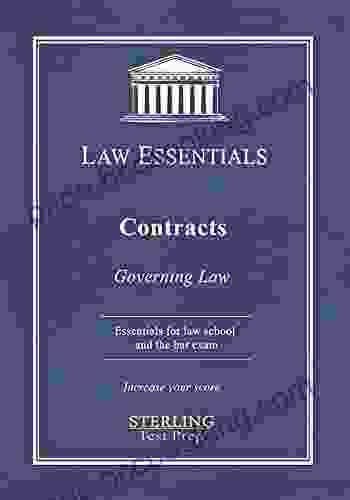
 Victor Turner
Victor TurnerGoverning Law for Law School and Bar Exam Prep: The...
What is Governing...

 Robert Browning
Robert BrowningSterling Test Prep MCAT General Chemistry Practice...
: Embark on Your MCAT General Chemistry...
5 out of 5
| Language | : | English |
| File size | : | 7305 KB |
| Screen Reader | : | Supported |
| Print length | : | 266 pages |
| X-Ray for textbooks | : | Enabled |


